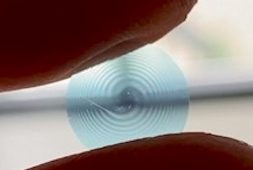
Exposure to loud noise, such as at concerts, often leaves people with ringing ears or, in severe cases, temporary or permanent hearing loss. Understanding the biological mechanism behind this phenomenon has led scientists to a breakthrough in prevention.
Researchers from the University of Pittsburgh in the United States have delved into the intricacies of noise-induced hearing loss. Their focus centered on the inner ear, where they identified cellular damage linked to an excess of free-floating zinc – a crucial mineral for cellular function and hearting.
Professor Thanos Tzounopoulos, from the Pittsburgh Hearing Research Center, said, “Noise-induced hearing loss can be debilitating. Some people start hearing sounds that aren’t there, developing a condition called tinnitus, which severely affects a person’s quality of life.”
“Noise-induced hearing loss impairs millions of lives but, because the biology of hearing loss is not fully understood, preventing hearing loss has been an ongoing challenge.”
By studying the inner ear cells in mice, they observed a surge in zinc levels following exposure to loud noise, leading to cellular damage and disruptions in communication between cells.
In a significant development, the researchers discovered that drugs acting as molecular sponges, capable of trapping excess zinc, could potentially restore lost hearing. Moreover, when administered before exposure to loud noise, these drugs exhibited a protective effect, shielding against noise-induced damage.
Published in the journal Proceedings of the National Academy of Sciences, their findings provide a pathway toward addressing this pervasive issue. Mice treated with slow-releasing compounds to trap excess zinc were notably less susceptible to hearing loss, offering hope for mitigating the adverse effects of noise exposure.
This breakthrough not only open avenues for potential solutions but also lays the groundwork for the development of effective and minimally invasive treatments.
Furthermore, it paves the way for innovative products designed to safeguard individuals, including concertgoers and musicians, from noise-induced hearing loss in the future.
Looking ahead, the researchers envision further testing of this treatment with the ultimate aim of making it readily available. Their aspiration is to transform it into a simple, over-the-counter option, empowering individuals to proactively protect themselves from the detrimental effects of noise exposure on their hearing.



